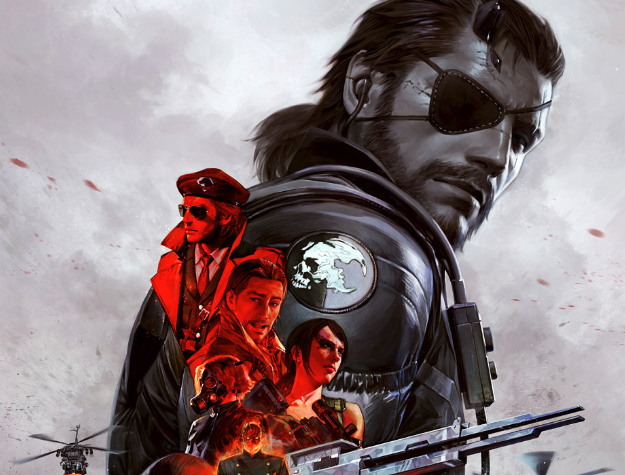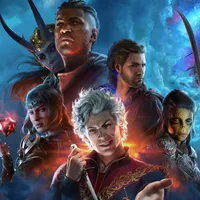Hideo Kojima waxes lyrical about an Expo in 1970 he credits for Metal Gear and Death Stranding, says that 'young bureaucrats' asked him to help design the 2025 follow-up but his ideas cost too much: 'I haven't had any contact with them since'
"I experienced the 'harmony between the future and the world' up-close."

Keep up to date with the most important stories and the best deals, as picked by the PC Gamer team.
You are now subscribed
Your newsletter sign-up was successful
Want to add more newsletters?

Every Friday
GamesRadar+
Your weekly update on everything you could ever want to know about the games you already love, games we know you're going to love in the near future, and tales from the communities that surround them.

Every Thursday
GTA 6 O'clock
Our special GTA 6 newsletter, with breaking news, insider info, and rumor analysis from the award-winning GTA 6 O'clock experts.

Every Friday
Knowledge
From the creators of Edge: A weekly videogame industry newsletter with analysis from expert writers, guidance from professionals, and insight into what's on the horizon.

Every Thursday
The Setup
Hardware nerds unite, sign up to our free tech newsletter for a weekly digest of the hottest new tech, the latest gadgets on the test bench, and much more.

Every Wednesday
Switch 2 Spotlight
Sign up to our new Switch 2 newsletter, where we bring you the latest talking points on Nintendo's new console each week, bring you up to date on the news, and recommend what games to play.

Every Saturday
The Watchlist
Subscribe for a weekly digest of the movie and TV news that matters, direct to your inbox. From first-look trailers, interviews, reviews and explainers, we've got you covered.

Once a month
SFX
Get sneak previews, exclusive competitions and details of special events each month!
Hideo Kojima has written an essay for the Japanese magazine An-An (spotted by Automaton) on one of his favourite topics: the 1970 World Expo held in Osaka, Japan. Kojima has often touched on this event in his writings, and the impact that his repeated visits had on his young mind. This time around, he's even crediting it with inspiring Metal Gear and Death Stranding.
Expo '70 was organised around the theme of "Progress and Harmony for Mankind", and featured participation from 76 countries and 32 organisations. It had a theme song, Haruo Minami’s 'Sekai no kuni kara konnichiwa' (Hello from all over the world), which Kojima is a little obsessive about: the song repeats the "hello" refrain many times as well as talking about humanity "holding hands" across borders. It's actually a bit of a bop.
"When the Expo opened, I had just finished elementary school," writes Kojima. "I was able to visit the site many times. I went there dozens of times [...] At the Soviet Pavilion, I waited in line for over two hours, with a line stretching around the perimeter. Unfortunately, the American Pavilion, where I was hoping to see the 'moon rock', was too crowded, and I missed it."
Remember that moon rock, because we'll be returning to it at the end. Kojima remembers borrowing his dad's new automatic camera and taking loads of photos, as well as the commemorative badges that were handed out in each pavilion ("children collected them and showed them off to each other").
"I experienced the 'harmony between the future and the world' up-close at the Expo," writes Kojima, and recalls meeting famous artists, writers, designers, and saying hello and shaking hands. "Technology, science, design, fashion, history, the world, culture, and society. It's safe to say that those 'hellos' shaped who I am. Shaking hands with the Expo changed my life and my vision of the future. In my life, 1970 marked the boundary between BC and AD."
Kojima says the point isn't just that the Expo blew him away with cutting edge technology and future visions, but "showed me the diversity of countries, ethnicities, races, religions, customs, and histories from around the world… Without that Expo, my future-oriented approach and globalism would never have developed. Neither 'Metal Gear' nor 'Death Stranding' would have been created."
It's not hard to see the influence: both series feature characters from all over the world, focus heavily on the intersections between geopolitics and technology, and wrestle with various notions of what the future could or might look like. Metal Gear Solid V's entire subtext is about the dangers of cultural homogenisation (no laughing at the back), while more recently Death Stranding 2 sees Kojima return to his pet theme that the internet might be terrible for us, actually. And almost every game Kojima has made has some sort of legacy theme, and musings about the kind of world we want our children to see.
Keep up to date with the most important stories and the best deals, as picked by the PC Gamer team.

Kojima is writing about Expo '70 because recently he attended Expo 2025, a follow-up of sorts that even has a theme song paying tribute to the original theme song: hilariously, Kojima notes that the 1970 song repeats "hello" 35 times, but in the new song "'hello' is only repeated eight times."
Perhaps this contributed to a "strange feeling" about the whole thing. "I wanted to see for myself how 'globalism' and 'visions of the future' have changed over the past 55 years, and how the baton will be passed on," writes Kojima. "[But] I didn't get that sense of a tremendous future like I did as a child. It wasn't thrilling or exciting. Just a ceaseless, predictable tomorrow stretching on and on.
"It wasn't that there was no 'future'—rather that I couldn't ascertain the next 'tomorrow' for myself. The 'future' I dreamed of at that Expo—I've already experienced most of it. Robots, videophones and moving walkways have become commonplace. The tomorrow that this Expo promotes is one that children will witness."
Kojima says this is why Expos are really for children, and with his recent streak of fatalism notes that the real future is "something old people can never know."
Then he has a little bit of a swipe at the organising committee, and what he clearly sees as a lack of ambition. Apparently a "large number" of them came to see him six years ago to solicit ideas for Expo 2025. "Their pitch, including the idea that transportation to the venue would be via the existing subway, seemed to lack a sense of the Expo or a sense of the future in every respect," says Kojima.
"It wasn't just the exhibits, but even the means of transportation and waiting lines that needed to evoke the 'coming 22nd century.' I offered a variety of ideas and insights, as well as proposals from a creator of the gaming generation, but the young bureaucrats, who had no experience of that Expo, simply smiled wryly and said, 'We don't have the money.' I haven't had any contact with them since."
Things you never say to Hideo Kojima: "we don't have the money." But there's something weirdly affecting about how Kojima is grappling with his mortality here, and coming to terms with his changing perceptions. Even his grumbles about the young bureaucrats seems to unknowingly fit that motif: Kojima is getting old.
However, I believe I've ascertained the real source of his disappointment. Remember the moon rock? At Expo '70 this was a rock that the Apollo 12 astronauts had brought back from the moon. At Expo 2025, our man wanted to right this wrong.
"I was never able to see the 'moon rock' brought back by Apollo 12," writes Kojima. "That was a regret. Now, after 55 years, I was getting my revenge. I was finally going to come face-to-face with that rock!"
Alas!
"In my excited state, a kind staff member at the American Pavilion whispered to me, 'This is not the rock exhibited at the previous Expo, but a different rock brought back by Apollo 17.' There was no doubt that it was a moon rock, but my revenge was not to be had."
2025 games: This year's upcoming releases
Best PC games: Our all-time favorites
Free PC games: Freebie fest
Best FPS games: Finest gunplay
Best RPGs: Grand adventures
Best co-op games: Better together

Rich is a games journalist with 15 years' experience, beginning his career on Edge magazine before working for a wide range of outlets, including Ars Technica, Eurogamer, GamesRadar+, Gamespot, the Guardian, IGN, the New Statesman, Polygon, and Vice. He was the editor of Kotaku UK, the UK arm of Kotaku, for three years before joining PC Gamer. He is the author of a Brief History of Video Games, a full history of the medium, which the Midwest Book Review described as "[a] must-read for serious minded game historians and curious video game connoisseurs alike."
You must confirm your public display name before commenting
Please logout and then login again, you will then be prompted to enter your display name.


